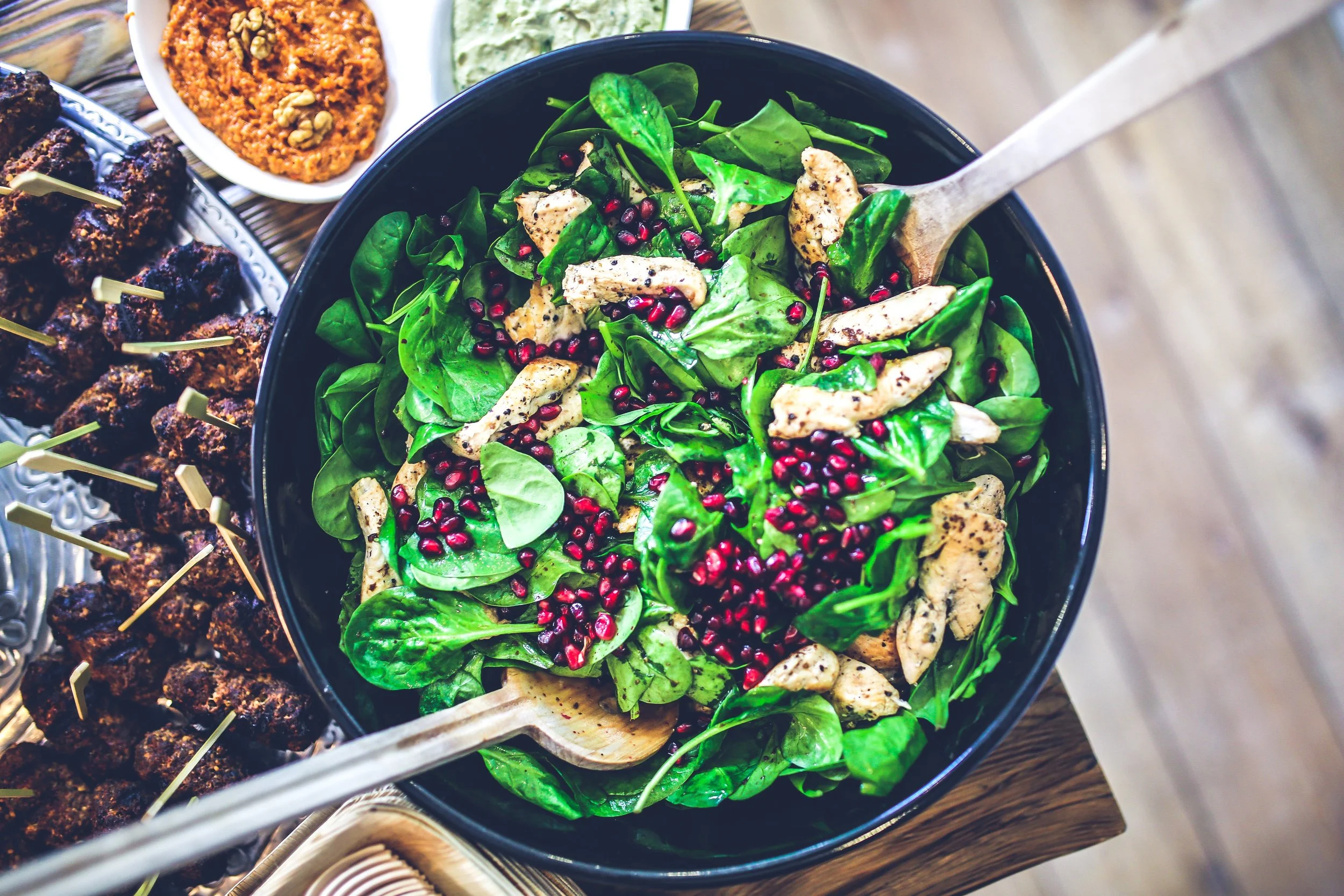In this second of a three part series we look at how what you eat directly affects how you feel. You can read part one here: Exercise your way to happiness.
Food is tricky. Take the humble Tim Tam. It feels good to eat. Really good. All that chocolate and sugar sends the pleasure centre in our brain into overdrive urging us to eat a few more. There’s an evolutionary reason for this.
When we were cave-people, calorie-dense foods were hard to find. Imagine for a minute that you are out hunting and you haven’t eaten for a few days when you discover a tree full of ripe fruit. Naturally you eat as much of it as you can because you don’t know when you will find another bountiful source of calories like this. It could be days before your next meal. Over millennia our bodies adapted to eating in this feast/fast routine.
In evolutionary terms, our physiology today is exactly the same as it was back then. What’s changed is the environment that we live in. Our bodies have not evolved to cope with the abundance of calories that now surrounded us. That’s the quantity part of the story. The quality part of the story is just as important.
Eating the right foods can have a big impact on how you feel. Does this mean you can only eat three spinach leaves and a glass of filtered water each day?
Happily, no. Using food to boost your wellbeing does not mean revolutionising your diet tomorrow. We’re talking about moving towards a better diet, step by step. If you understand the basic principles that apply, you’re empowered to make better decisions more of the time.
Here are the four main reasons why diet quality matters when it comes to how you feel.
1. When we eat a poor quality diet we literally shrink our brain. Our hippocampus is responsible for learning, memory and mood and it is specifically implicated in depression. When your brain shrinks we see a drop in brain derived neurotrophic factor (BDNF), the stuff that protects your neurons from damage and promotes the growth of more neurons! It not only improved neuro-plasticity, BDNF as mentioned in the article on exercise and happiness also helps you feel happier.
2. A junk food diet can cause problems like insomnia and inflammation. The high sugar content of quick carbs from packet foods (think biscuits, crisps, cakes, white bread) also lead to blood sugar fluctuations. When your blood sugar levels are acting like a yo-yo you also experience serotonin disruption and increased carb cravings. This becomes a vicious cycle for many people!
3. Poor quality diet cause nutrient imbalances. You end up with excessive amounts of omega 6 fats, sodium and synthetic folic acid (due to fortification of wheat products like bread). What we want for heath is more omega 3 fats because they are anti-inflammatory, less sodium to reduce cardiovascular risk and active folate coming from healthy eating.
We also see nutrient deficiencies and this is where mood can go out the window. When we forego eating a wholefood, unprocessed diet we end up low on crucial mood supporting nutrient cofactors like magnesium, zinc, iron and fibre. We need the magnesium, zinc and iron to make happiness and calmness inducing neurotransmitters like serotonin, dopamine and GABA. We need the fibre to feed our gut bugs to keep them happy because as I will explain shortly, your gut can dictate how you feel.
4. Eating processed foods harms the good bugs in your gut. This results in inflammation and endotoxins being created that cross the blood brain barrier and affect how you feel. One study found that the endotoxins released after a junk food meal was eaten by people hung around in their system for six hours! Endotoxins tend to make you feel foggy in the head and can cause mood crashes.
In fact, the bacteria in your gut play a leading role in how you feel. The psychobiome is a real thing. When you take antibiotics and medications like proton pump inhibitors over the long term, there is damage to the microbiome and an increased incidence of depression and reduction in BDNF production.
What should you be aiming for when it comes to eating your way to happiness?
Here are some general food guidelines to follow:
Eat a rainbow
Eat as many different colours and types of vegetables as you can to get the right amount of fibre into your daily diet to fuel gut bacteria. Your gut bacteria actually produce important neurotransmitters like serotonin, GABA and dopamine. Those bacteria need to be fed and they love fibre.
Eat legumes daily
Lentils, chickpeas and black beans are all high in fibre and very important for fuelling your gut bugs.
Eat fermented foods
Drink kefir or eat pickles and sauerkraut to help improve the microbiome. They contain beneficial bacteria to help populate the gut.
Ensure you eat raw nuts and seeds daily
The monounsaturated fats in nuts and seeds help improve brain health
Eat fish often
Aim for two to three serves a week of wild caught, small oily fish to fuel brain health with anti-inflammatory polyunsaturated fats
Free range meat
Not too little and not too much is the approach to take here. The omega 3 fats in free range meat (and fish) improve neurotransmitter availability and communication required for mood support
Eat whole grains daily
Whole grains are an important source of fibre and nutrients. Focus on having more coloured grains like brown, red and black rice and tricolored quinoa
Extra virgin olive oil
More good monounsaturated fats to help with maintaining good mood
